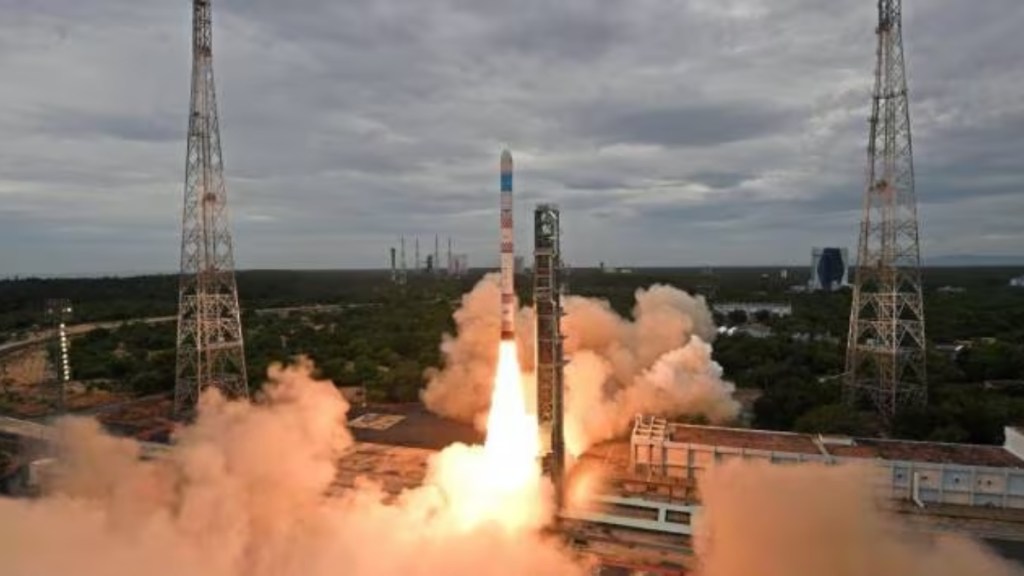To align with global leaders such as the United States ($62 billion), Space Industry Association – India (SIA-India) in its Pre-Budget Memorandum for the FY 2024-25 has proposed a substantial increase in India’s space budget, currently around $1.4 billion.
This strategic move aims to support India’s expanding space program, foster private sector involvement, drive technological advancements, and position the nation as a key player in the dynamic global space ecosystem. According to an official statement issued by SIA-India, the proposal also emphasizes the allocation of sufficient resources for an effective cybersecurity system to safeguard valuable space assets.
ALSO READ
Budget 2024 Live Updates: Union Budget 2024 Live Streaming, FM Nirmala Sitharaman Budget 2024 Speech Live
Railway Budget 2024 Live Updates: Indian Rail Budget 2024 Live Streaming
Budget 2024 Income Tax Live Updates: Income Tax Slab Rate Change Budget 2024 Live Updates
Budget 2024 Stocks to Focus: Union Budget 2024 Impact on Share Market Today
Additionally, SIA-India advocates for the explicit inclusion of critical space infrastructure in the definition of “Critical Information Infrastructure” and calls for a detailed quantitative analysis of the space economy. The adoption of a satellite account aligned with global standards is recommended to ensure accurate measurement, prevent double counting, and boost funding.
Dr Subba Rao Pavuluri, President of SIA-India, says: “This comprehensive pre-budget submission focuses on pivotal measures aimed at propelling the Commercial Space Sector, with a special emphasis on nurturing and supporting deeptech space startups. Emphasizing the imperative of increased funding, we propose a substantial boost in India’s space budget, aligning it with global standards. Financial incentives, interest rate subsidies, and collaborative frameworks between academic institutions and startups are advocated to nurture innovation.”
The memorandum also emphasizes the implementation of extensive funding programs for deeptech space startups, modeled after IDEx, along with interest rate subsidies for startup loans to enhance affordability.
It also recommends the creation of targeted tax incentives and investment-friendly policies to stimulate private sector participation in high-risk ventures related to deep tech R&D. An extension of the tax holiday period for deep tech startups to at least seven years is proposed.
Underscores the persisting challenge in startup funding despite the liberalization of CSR guidelines, with only 0.2% of total CSR spending allocated to research and technology.
Emphasizing the need for clear guidelines aligned with CSR objectives, it highlights the importance of evaluating policy measures to ensure effective support for deep tech startups and foster innovation. Without robust evaluation and proactive steps to address these issues, policy measures may fall short in achieving their intended outcomes.
Further, it recommends liberalizing FDI norms by proposing an automatic route or streamlined process. This initiative aims to attract foreign investments, targeting a goal of $13 billion by 2025 and a 10% share of the global space economy by 2030. Enabling a favourable FDI policy is anticipated to stimulate growth in the space sector and positively impact various other industries.
“SIA-India remains dedicated to collaborating with the government to develop a vibrant and competitive satellite launch and manufacturing sector hub. These reforms pave the way for India to solidify its position as a key player in the global space arena, fostering technological advancements and economic growth,” says Anil Prakash, Director-General of SIA-India.
The Association advocates for several other key taxation reforms, including deferring Minimum Alternate Tax (MAT).
Customs duty exemptions, GST relaxations, and capital gains tax waivers aim to enhance the financial flexibility of deep tech startups.
Regulatory suggestions encompass a Comprehensive Space Activities Bill, quantifying the space economy, and encouraging CSR funding for startups.
Infrastructure-wise, their proposal advocates for local certification facilities, streamlined visa programs, and specialized R&D hubs for deep tech startups.

